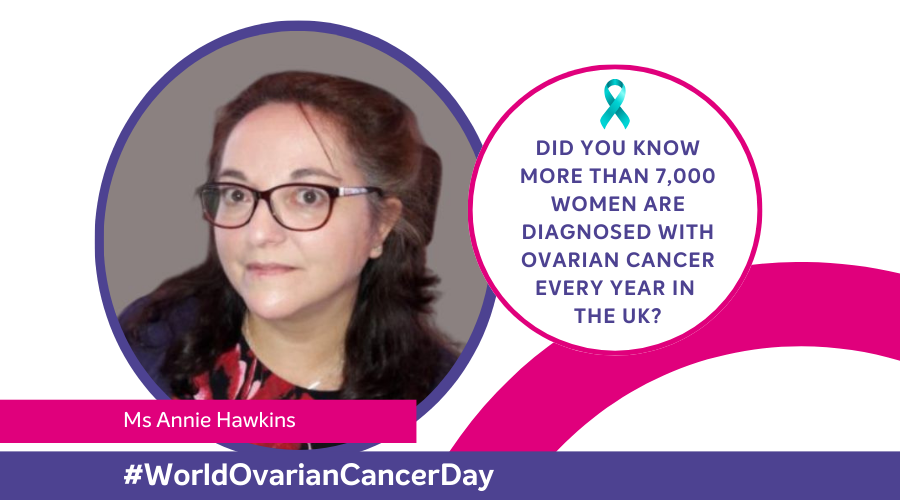World Ovarian Cancer Day: Symptoms, Diagnosis and Treatment

More than 7,000 women are diagnosed with ovarian cancer every year in the UK, and one in fifty females will be given a diagnosis in their lifetime. The good news is that if diagnosed at the earliest stage, nine in ten women will survive.
World Ovarian Cancer Day raises vital awareness of the disease globally and helps to educate people on common signs of the condition, leading to an earlier diagnosis and treatment.
What is ovarian cancer?
Ovarian cancer is a type of cancer that begins in the ovaries, the two small glands located on either side of the uterus in the pelvis that are part of the female reproductive system. The ovaries are responsible for producing eggs and hormones like oestrogen and progesterone, and from which ovulation into the fallopian tubes occurs.
Ovarian cancer principally occurs after the menopause. There are many different types, which affect how the cancer behaves, and the treatment offered. Younger women can get borderline ovarian tumours (BOTs), which form a separate entity, a majority of which behave in a benign fashion and do not cause the patient too much harm.
Types of ovarian cancer
Ovarian tumours are grouped depending on which part of the ovary they develop from. The most common types of cells ovarian tumours come from include:
- Epithelial cells – these are the cells that cover the surface of the ovaries and fallopian tubes.
- Sex cord stromal cells – these are cells in the core (centre) of the ovaries. They provide structure to the ovary and support the development of other ovarian cells.
- Germ cells – these are the cells that develop into eggs within the ovaries.
Signs and Symptoms
Symptoms of ovarian cancer are non-specific and may include
- Abdominal bloating or swelling
- Pelvic or abdominal pain
- Feeling full quickly when eating or loss of appetite
- Unexplained weight loss
- Changes in bowel habit (e.g. constipation)
- Frequency or urgency of urination
- Fatigue
- Back pain
- Pain during sex
- Bleeding irregularities (especially post-menopausal bleeding)
When to see a doctor
It is important to make an appointment with your doctor or a specialist if you have any signs or symptoms that worry you, particularly if you have noticed a change in what you normally experience. You know your body better than anyone else does.
Screening for ovarian cancer
Currently, there is no effective routine screening test for ovarian cancer that is recommended for women, as there is for breast or cervical cancer. Ultrasound scans and special blood tests will help identify some, but most ovarian cancers are not identified until they are advanced.
Treatment
If ovarian cancer is identified early enough, surgical treatment will be the first option and as much of the disease as possible will be removed. Complete removal of all the tumour is the aim of surgery for ovarian cancers where it is possible. The outlook for disease caught early when all tumour is removed before it has spread is positive.
In some tumours (e.g. Borderline Ovarian tumours), a fertility sparing approach may be used in young patients which will allow a woman to have her own children. However, further surgery (removal of all the reproductive organs including the womb and ovaries) is likely to be discussed with the patient once they have completed their family.
Hormone Health support
At Hormone Health, we are passionate about providing evidence-based information to help women make informed decisions regarding their health. All investigations and treatments are supported by extensive clinical research and the relevant expert academic societies. If you are experiencing any of the above symptoms our specialist team can help.
Arrange a consultation with Hormone Health Associate, Ms Annie Hawkins, who is a experienced Consultant Obstetrician and Gynaecologist.
Get in touch. We can help.
The Hormone Health Associates are here to advise and support.
Call: +44 (0)808 196 1901
Email: info@hormonehealth.co.uk